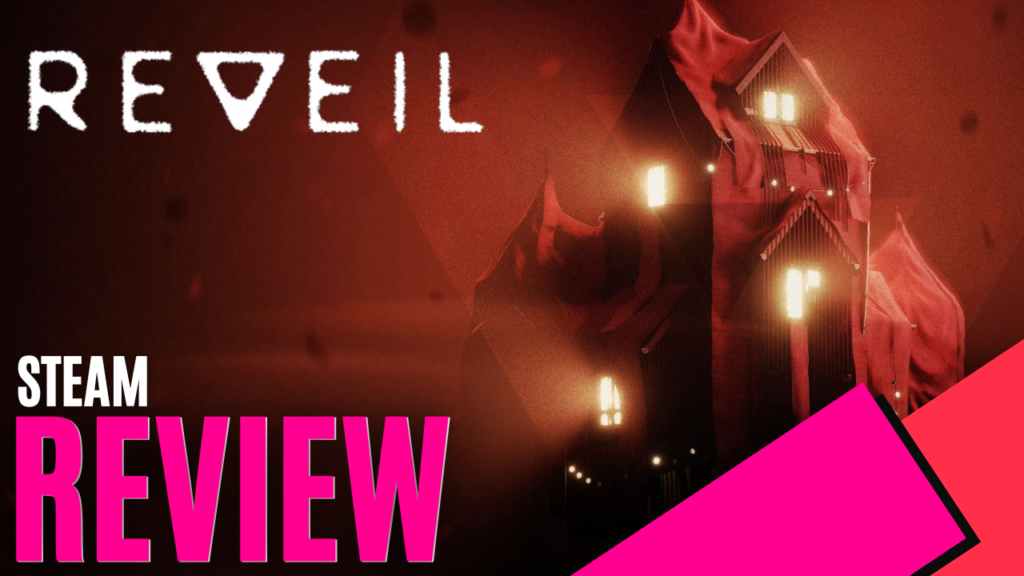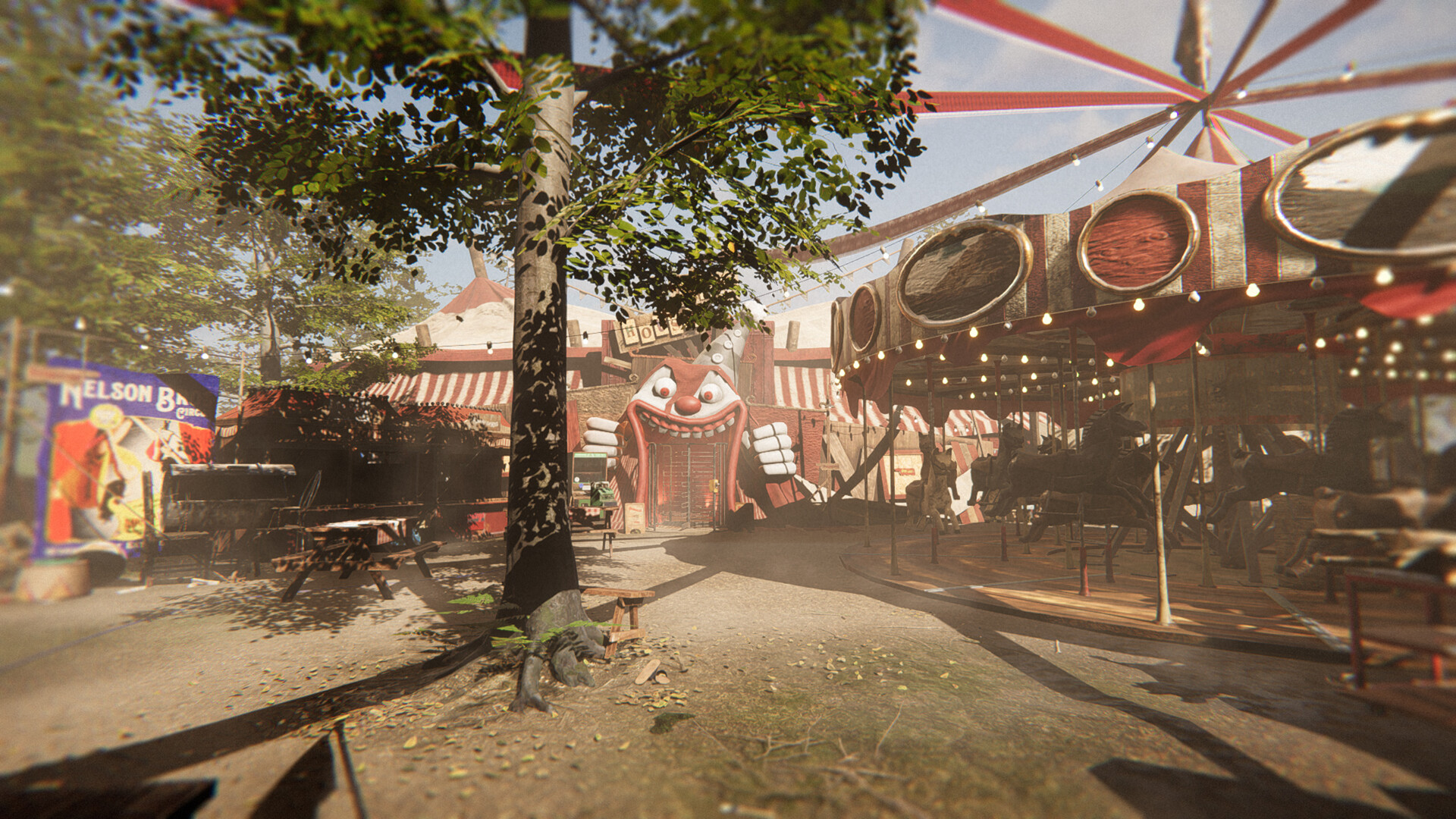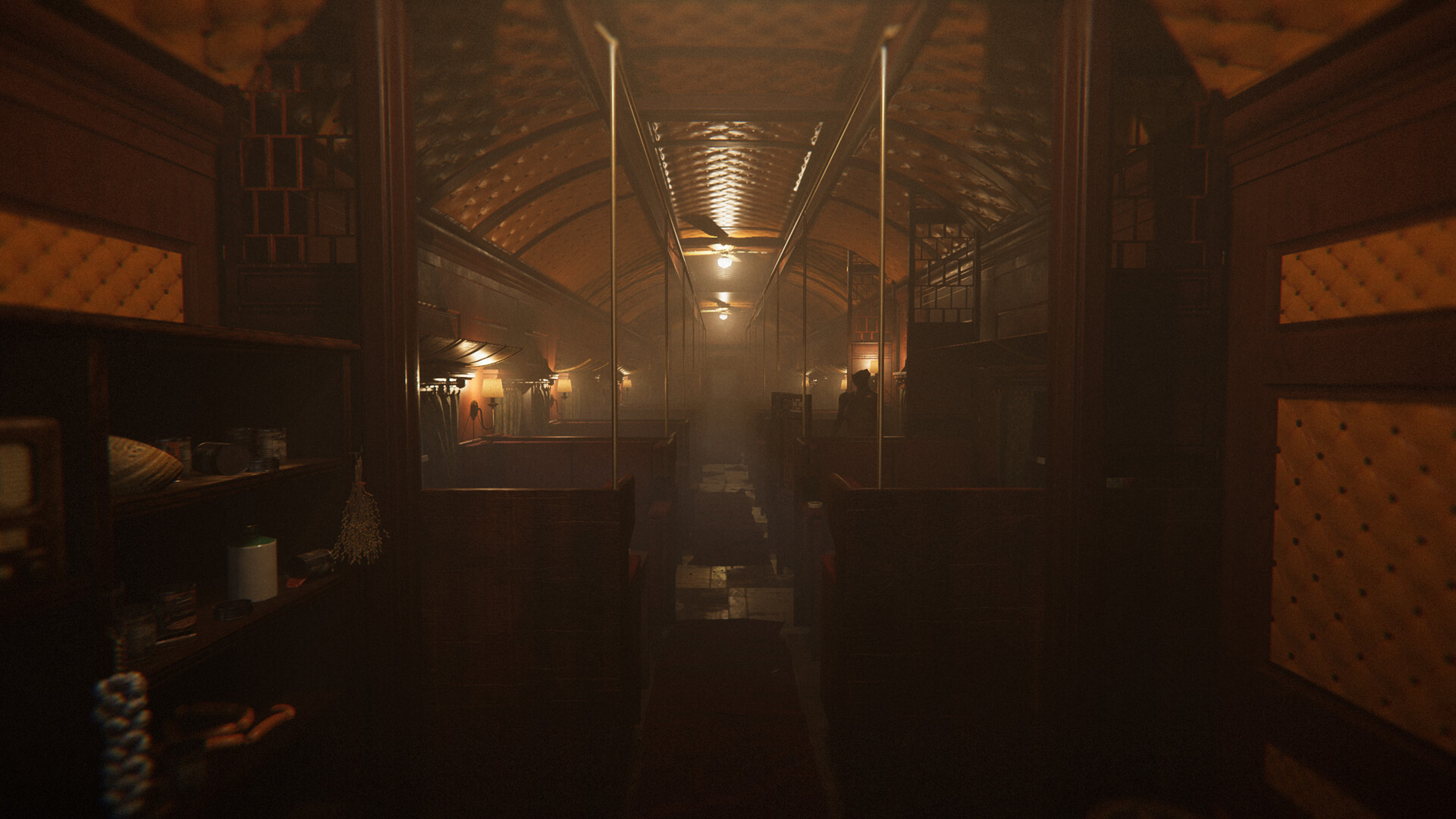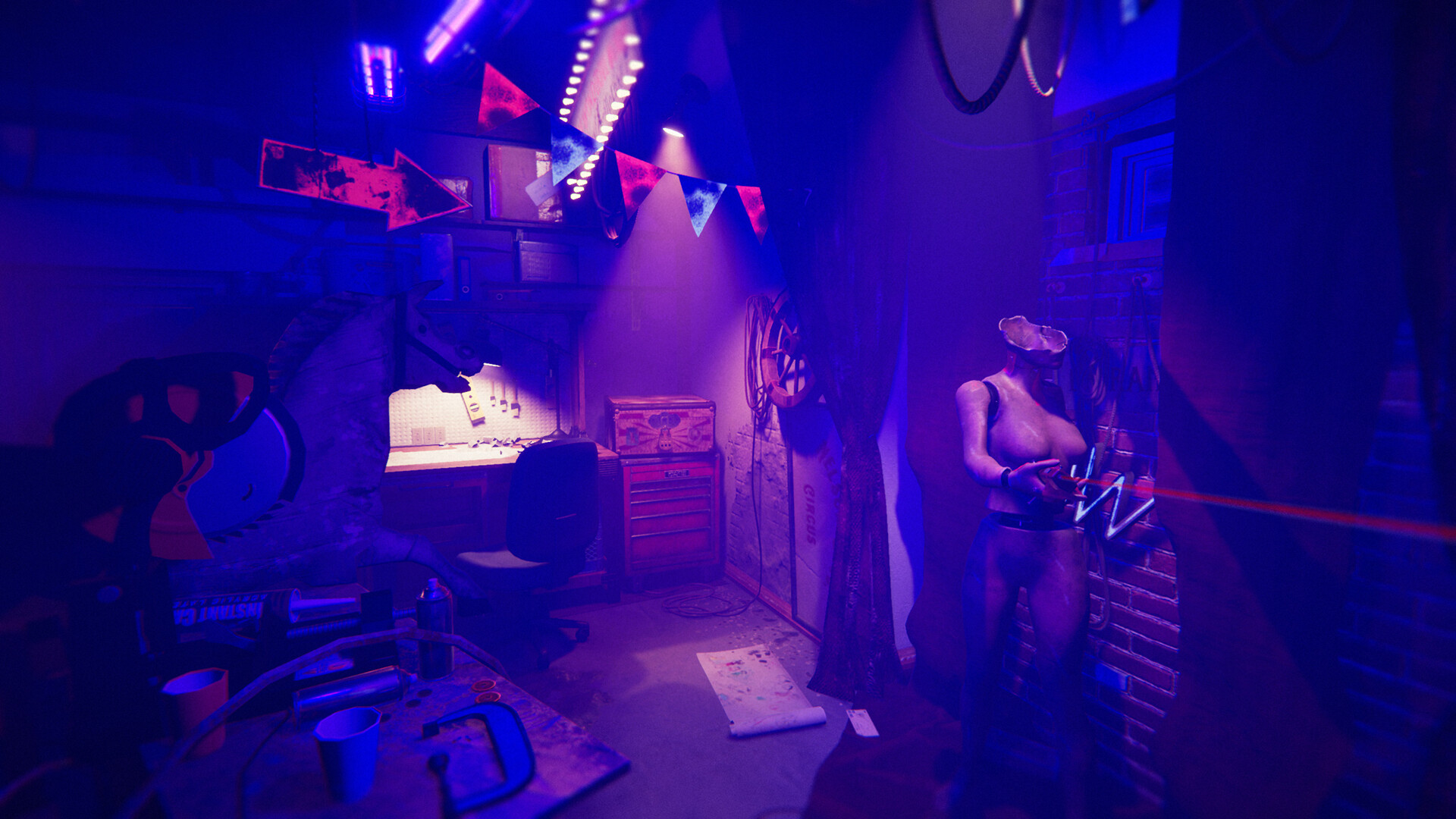
Few things scare me more than abandoned amusement parks. They’re typically filled with the things that do. Clowns, inanimate objects jumping out at me unexpectedly and, worst of all, children. Reveil, a psychological first-person horror game developed by Pixelsplit and published by Daedelic Entertainment, has all of the above, making for a night at the circus I won’t soon forget.
Walking simulators aren’t given much slack in the gaming world, but there are some occasions when they lead to mastery in storytelling and simplistic yet memorable gameplay experiences. Reveil joins the list of clever first-person walking simulators by adding some psychological thriller elements, creating a potent mix of anxiety and curiosity, where is hard to brave but even harder to put down.
Walter Thomspon wakes from a nightmare in his ominously lit and very quiet home – a surefire way to get me freaked out by the slightest sound. Reaching the living room, a beautifully haunting song plays over a record player and I get my bearings, learning that my wife and child are aerial artists in the Nelson Bros Circus, and their lives in a travelling circus are surprisingly complicated regarding family matters. Walter seems concerned they aren’t home that night, so it’s off to the circus we go.

My investigations were off to a slow start as I learned about his wife, Martha, and daughter, Dorie, and I got an inkling that there was more to it than them being out on circus business. The early stages of Reveil are a slow burn; solving puzzles to unlock various contraptions. It’s surprisingly calming, and it isn’t until I got to the big top that the fear begins to rear its ugly head.
The setpieces start as typical smoke and mirrors; a wooden clown jumping out or a silly little spook, but once some balloons spelling out “DIE” floated by, my fears began to unveil themselves. It only gets creepier from there, and Reveil promises many of our worst nightmares will make an appearance.
Some of the worst offenders are in the funhouse, which is an interesting choice of words, as I wouldn’t say adrenaline from absolute fear counts as fun, but it’s in areas like this that Reveil’s environmental storytelling shines, and the tense atmosphere, brought on by visuals and audio, added to the build-up. The ambient sound design delivers creaks, rattles, and shudders, and just when I felt like I was in the clear, a harsh stinger reminded me that I should be on edge, anticipating the worst.
The graphics are eerie yet stunning, with ominous lighting and plenty of special effects, however, this was also to their detriment. Flashing lights, strobing effects, and intense sounds caused a sensory overload. It may be too much for some players to handle amidst the chaotic experience, but the devs warn players before starting out.

On the subject of being overwhelming, while Walter’s voice actor was great, he seemed unphased by the ordeal. It broke the immersion when he didn’t seem particularly hysterical over the psychological tortures he was enduring.
Most of the journey is in linear and confined spaces. There are a lot of corridors, which is fitting given the prevalent backrooms-style horror trend going around, but they make the simple path interesting with a few tricks.
Reveil made turning around one of the scariest things to do. There were a lot of doors, but there were other ways forward, and often times when turning around, there would be a ridiculously seamless transition, either resulting in a complete change of scenery or a horrifying jumpscare.
Though a few areas may be all too real for some, an early stand out was the mirror room. While super effective, it relies on feeling lost in a maze; a confined space with seemingly no way out.
Though I don’t see many gamers with massive phobias dipping into the horror genre, they may be safe from ever experiencing this kind of claustrophobic torment. Reveil has nailed the timing for messing with the players’ heads, maintaining the balance of suspense with the occasional jumpscare to keep it fresh.

Reveil has just enough puzzle elements to mix up the gameplay. Some are more involved than others, but it’s still a nice break before heading back out. Speaking of pacing, about ¾ of the way in, the game pivots to what felt like almost a completely different game.
After a gradual build-up to what I anticipated to be a grand finale, I found the final areas, after 4 or so hours of gameplay, anti-climactic in the end. The first ¾ is where the game hits its heights, the peak of psychological suspense before it fizzles out in the final act.
Reveil can be played on a keyboard and mouse, or a controller, and both have simplistic controls. There’s no combat, but running and crouching are the only saving graces in certain circumstances. Sometimes, opening doors could be finicky in a chase sequence, with mere mili-seconds to get through them, especially when using a controller. Playing on uncapped framerates, I barely fell under 240 frames despite some pretty intense effects, an impressive feat while having strangely gorgeous environmental details.
Reveil is a horror game that kept me guessing. It has reasonably strong storytelling and an atmosphere that would keep even the bravest gamers on edge. The creepy circus is the perfect setting to fulfil some players’ worst nightmares, and it mostly achieves this. It may not be for everyone, but Reveil is an immersive, adrenaline-pumping experience for those courageous enough to delve into some of their worst nightmares.

The Good
- Stunning and ominous environmental design
- Immersive, simplistic gameplay
- Great sound design and ambience
The Bad
- Maybe unplayable to those prone to sensory overload, e.g. flashing lights and harsh sounds
- Slow start and anti-climactic finale
- The main protagonist can seem out of place with his reactions








